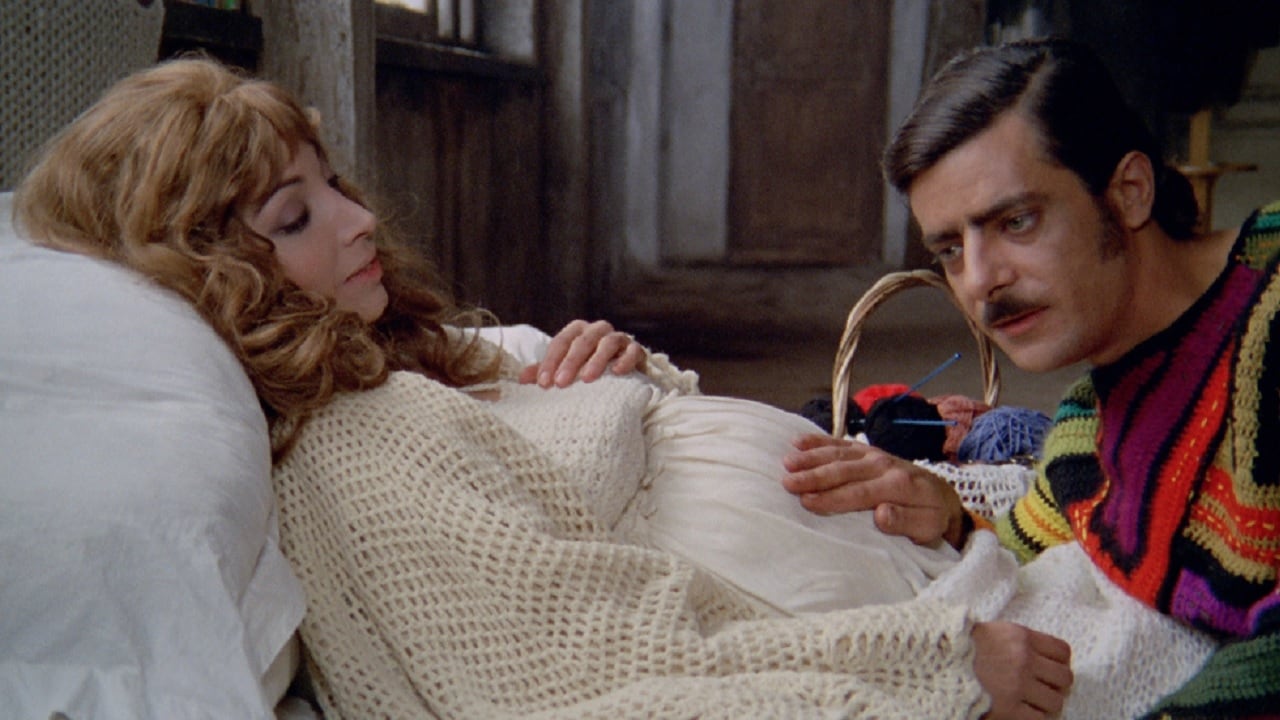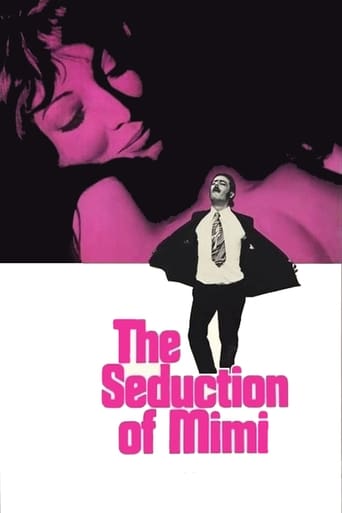Dorathen
Better Late Then Never
Doomtomylo
a film so unique, intoxicating and bizarre that it not only demands another viewing, but is also forgivable as a satirical comedy where the jokes eventually take the back seat.
KnotStronger
This is a must-see and one of the best documentaries - and films - of this year.
Yazmin
Close shines in drama with strong language, adult themes.
Walter Broner
As a woman director in the early seventies, in a series of films Lina Wertmuller took on the issues related to gender and sexual revolutions, feminism and entrenched politics and economics. This work is one of them.As is true of this part of her oeuvre, the film works on many levels. The director is never satisfied with merely going after the easy laughs. Any viewer looking for social commentary, both in the main story-telling and the subtext will come away satisfied.This is a very "Italian" and "European" movie, in the sense that it captures the spirit of the times: both of the Italian North/South cultural wars/divide and of a particular European concern with the strength of "left" political and artistic movements and explorations of alternative, non-materialistic life-styles.All of this is shown as experienced by Mimi, a southern Italian everyman, buffeted by fate. In this role, Giancarlo Giannini once again shows his mastery of the acting craft. As is true for all foreign films, my advice is that if you don't know the language of the original, always view the subtitled version, so as not to miss the subtleties of the individual performances.I won't give away any of the plot. Just want to note that (as an architect, not a formally- trained film-maker) I can still appreciate the choices made by the director and cinematographer in telling the story. This is true for a thousand details. In the case of this film, the inspired choice of the camera lens ("fish-eye") for the scene between Giannini and Elena Fiore toward the end of the movie, adds immeasurably to its effectiveness. See for yourself and ROTFL.
bracketj
This story is culturally valuable because it depicts part of the life of one man in a very universal manner. Mimi is every man: he lusts, he is jealous, he is vulnerable, he wants job security, he has morals and he sometimes compromises them. At the same time, however, Mimi's predicaments are presented in such an exaggerated, humorous manner that they provide relief from the audience's own frustrations. On a more particular level, this film reveals the impact that the "mafia" had on Italian society at this time. Yet, even this is done in so humorous a way as to never seem upsetting. The bitterness of the events that take place—the loss of love, humiliation and misuse of women, the loss of value and the buckling of Mimi to corrupt social powers—are given to an audience with enough comical sugar to allow it to go down easily. And although women are shown objectified and humiliated in this society, the men who do it are shown to be victims of their own absurdities and social traditions as well. This film both exemplifies the dangers of being narcissistic and acting rashly on jealousy and desire, and provides comic relief for a world plagued with problems.
bradj2424
I recently saw this film for the first time. A recent poster said this movie leans "against" social issues....I tend to see the film as capturing a dialectic between the personal and the political... it is political in at least 2 ways that I can see....1) it shows the outrageous inadequacy of bourgeois "democracy" to defend the interests of working people...the Mafia and its candidates who echo the ideology of fascism in the film represent capitalism as both the fulfillment and the negation of the democratic "facade"... (the lead character's descent into crass opportunism as well as his sexual aggression, it is to be noted, are NOT rewarded in the film...at the conclusion, he is profoundly alienated in a scene reminiscent of the final cut of Fellini's La Strada- probably some homage here).... 2) and this is probably the more dominant politically significant theme---this film attempts a radical critique of the institution of bourgeois marriage, through the destructive and artificial role that marriage plays in the film...not only in terms of the patriarchal double-standards, but in the institution's incapacity to most fully satisfy human strivings- female OR male.Whatever one can say about this film, I think anyone who sees it in anyway as a criticism of Communism is misreading the film....Certainly, a member of the Italian Communist Party (PCI) might understandably cringe at a Party supporter's (Mimi) sexual aggressiveness....but Mimi is apparently a Party "supporter" in the narrowest sense- only in the sense of voting for the Reds (remember PCI has long been a sizeable and popular Party in Italy), and by the end of the film he has DESCENDED to campaigning for a fascistic-Mafia-backed candidate....and the attitude of the PCI towards such a character as Mimi is symbolized by his comrades abandoning him in their red sickle-and- hammer-displaying wagon, disgusted at his sexism and misogyny, with hisopportunistic supporting of rightist candidates obviously the final straw....interestingly in La Strada, the lead character is much worse in terms of violence and maliciousness, and yet Wertmuller leaves us with LESS sympathy for Mimi than does Fellini for the lead role in La Strada, she thankfully spared us gratuitous "pitying" close-ups of Mimi bawling his eyes out.His girlfriend in Turin is NOT a Communist, i.e. a member of the PCI, as she makes clear, but apparently a former-Trotskyite-turned-quasi-Maoist who defensively emphasizes her "independence" from the Party (Trot to Maoist is an unlikelytransformation, btw, since Trots and Maoists are notoriously antipathic to each other-- the only thing uniting them being their dislike of the regular Communist Party)...anyway, if this is kind of ranty it's because I've only seen it once, and I have a lot of thoughts....if a movie gets me thinking like this one, it is on some level a success, I suppose. I enjoyed this film, and particularly felt the ending tied it all together well, and was more satisfying than I would have anticipated.
Mravsky
As always, Giannini and Melato are the shining stellas in yet another of the Wertmueller's movies. The two of them alone make this film worth seeing (though this time it's more Giannini since Melato's role is not as demanding as in some later films). However, compared to some other realizations by the same director-two-actors trio, this film does not strike as equally capturing and consistent in its message. Heavily leaning against social issues (remember "Swept Away"?), but bringing to the front the romance/fidelity/honor plot, it apparently fails to round up either of them. Not even the diversion into the familiar Italian-honor humor towards the end of the film is able to pull out the hanging feeling. Those who love the genre will still not regret spending their time with this movie.

